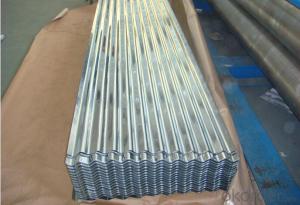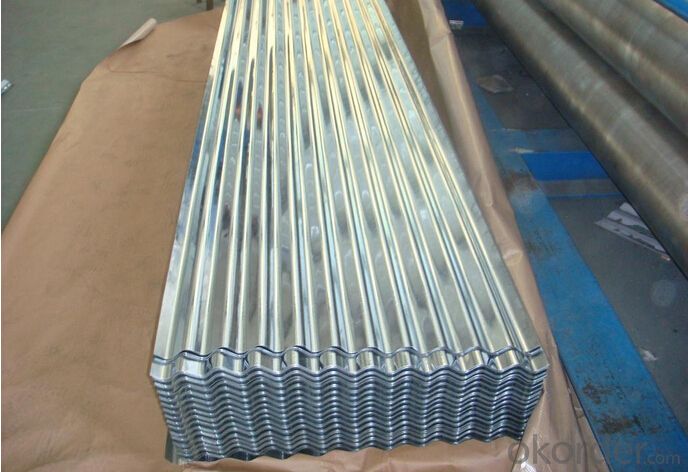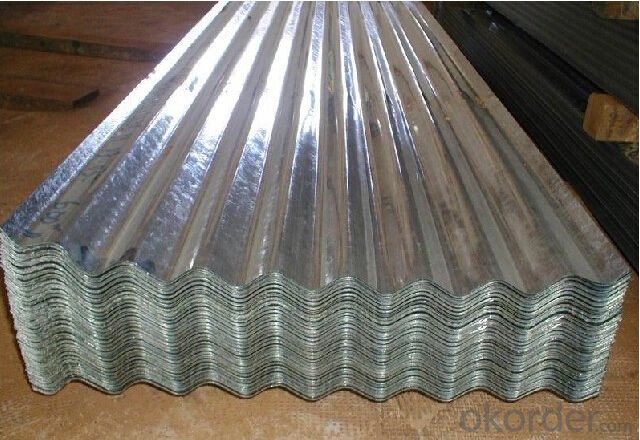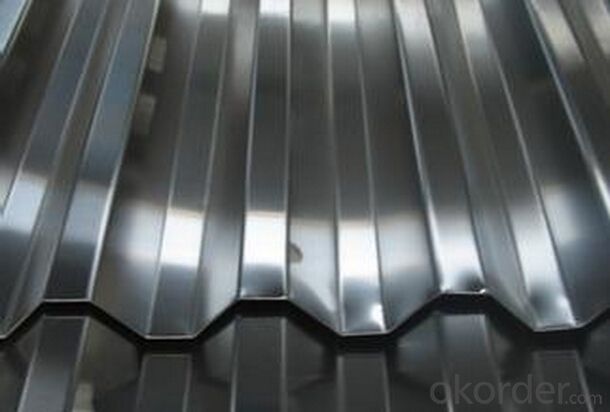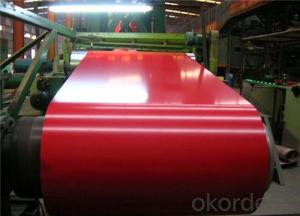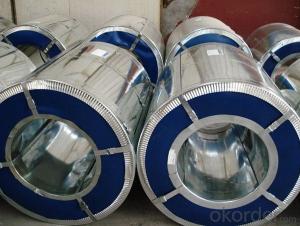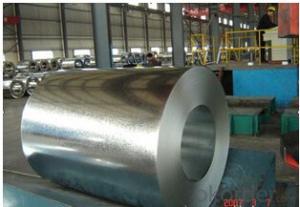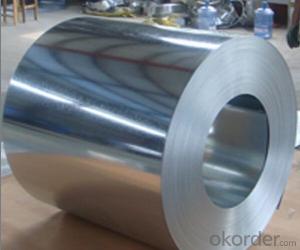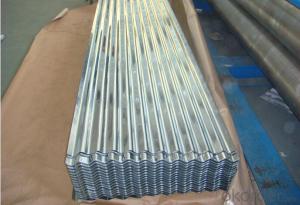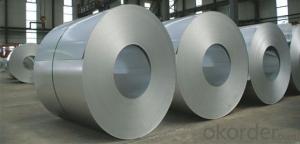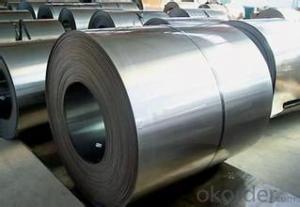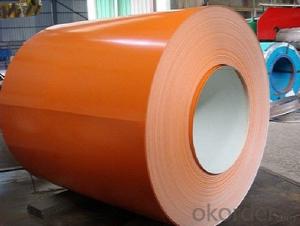High quality of corrugated steel coil from north of China
- Loading Port:
- Tianjin
- Payment Terms:
- TT OR LC
- Min Order Qty:
- 50 m.t.
- Supply Capability:
- 100000 m.t./month
OKorder Service Pledge
OKorder Financial Service
You Might Also Like
1. Hot-Dip Galvanized Steel Roof Description:
Hot-dip galvanized steel roof are available with a pure zinc coating through the hot-dip galvanizing process. It offers the economy, strength and formability of steel combined with the corrosion resistance of zinc. The hot-dip process is the process by which steel gets coated in layers of zinc to protect against rust. It is especially useful for countless outdoor and industrial application.
2.Main Features of the Hot-Dip Galvanized Steel Roof:
• Excellent process capability
• Smooth and flat surface
• Workability, durability
• Excellent heat resistance performance
• High strength
• Good formability
• Good visual effect
3.Hot-Dip Galvanized Steel Roof Images
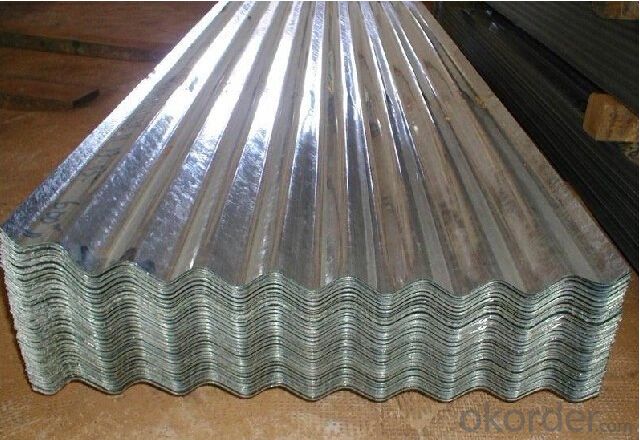
4.Hot-Dip Galvanized Steel Roof Specification
Material: Galvanized Sheet
Width: 650/800/890/900
Length: 1500/1800/2000/2400/3005/3600 or customized
Thickness: 0.2-2.0
Surface Treatment: Hot dipped/Bended
Application: warehouse; shelter; Commercial facilities; industrial facilities
5.FAQ of Hot-Dip Galvanized Steel Roof
Which payment term we can do?
L/C at sight or T/T.
What’s the basic material of this product?
Galvanized/Aluzinc Steel
- Q: How are steel coils used in the manufacturing of lighting fixtures?
- Steel coils are used in the manufacturing of lighting fixtures as they provide a sturdy and durable structure for the fixtures. The coils are typically shaped and formed to create the desired shape and design of the lighting fixture, ensuring its strength and stability. Additionally, the steel coils can be coated or painted to enhance the aesthetics of the fixture, making it more visually appealing.
- Q: What is the shelf life of a steel coil?
- The shelf life of a steel coil largely depends on various factors such as the type of steel, the storage conditions, and any protective measures taken. Generally, steel coils can have a shelf life ranging from a few months to several years. If the steel coil is properly stored in a controlled environment with suitable temperature, humidity, and ventilation, it can last for a longer period. Additionally, if the coil is coated with protective materials such as oil or anti-corrosion coatings, it can further extend its shelf life. However, if the steel coil is exposed to unfavorable storage conditions like high humidity, extreme temperatures, or corrosive substances, its shelf life can significantly decrease. Exposure to moisture and oxygen can lead to rust and corrosion, reducing the quality and structural integrity of the coil. To maximize the shelf life of a steel coil, it is essential to store it in a dry, well-ventilated area, away from direct sunlight and corrosive substances. Regular inspections and maintenance, including cleaning and re-application of protective coatings, can also help preserve the coil's quality. Ultimately, it is crucial to consult the manufacturer or supplier of the steel coil for specific shelf life recommendations as different types of steel may have varying durability and storage requirements.
- Q: What are the different methods of slitting steel coils?
- There are several different methods of slitting steel coils, each with its own advantages and limitations. Some of the most common methods include: 1. Rotary Shear Slitting: This method involves using rotating knives to cut the steel coil into narrower strips. It is a versatile and efficient method that allows for high-speed production and precise slitting. Rotary shear slitting is commonly used for thinner gauge materials. 2. Looping Pit Slitting: In this method, the steel coil passes through a looping pit where it is guided and tensioned before being slit. It is suitable for thicker gauge materials and provides good edge quality. Looping pit slitting allows for higher coil speeds and can handle heavier coils. 3. Drag Slitting: This method involves dragging the steel coil over a stationary blade or set of blades to perform the slitting. It is particularly useful for materials that are difficult to slit, such as high-strength steels. Drag slitting provides excellent edge quality and is often used for precision slitting applications. 4. Crush Slitting: Crush slitting involves applying pressure to the steel coil to crush and separate it into narrower strips. It is a cost-effective method suitable for lower gauge materials. However, it may result in slightly rougher edge quality compared to other methods. 5. Laser Slitting: Laser slitting utilizes a focused laser beam to cut through the steel coil. It is a highly precise method that offers excellent edge quality and minimal distortion. Laser slitting is commonly used for high-value and specialty materials. Each method has its own advantages and is suitable for specific applications and material types. The choice of slitting method depends on factors such as material thickness, desired edge quality, production speed requirements, and budget.
- Q: Is the product of mild steel environmentally friendly? does it produce any emissions?The same question for leather aswell.
- Steel just rusts, it doesn't produce any emissions just sitting there. They even make architectural steel called Corten to rust to a nice patina. If you consider how the steel was made in the first place, a great big NO! Steel making requires massive amounts of electricity plus it gives off some nasty fumes in the liquid state. Leather itself doesn't emit much of anything, but the dyes might. Again though, if you look at how it's made, tanning leather is right up there with steel mills and paper mills for pollution, some of the worst.
- Q: how many persent of manganese in all types of carbon steel
- Not more than 1.65 % of manganese in carbon steel. *Carbon steel, also called plain carbon steel, is steel where the main alloying constituent is carbon. The American Iron and Steel Institute (AISI) defines carbon steel as: Steel is considered to be carbon steel when no minimum content is specified or required for chromium, cobalt, columbium, molybdenum, nickel, titanium, tungsten, vanadium or zirconium, or any other element to be added to obtain a desired alloying effect; when the specified minimum for copper does not exceed 0.40 percent; or when the maximum content specified for any of the following elements does not exceed the percentages noted: manganese 1.65, silicon 0.60, copper 0.60 *AISI 1040 is a carbon steel which is having a 0.60-0.90 % of manganese.
- Q: What are the different types of steel coil cutting machines?
- There are several different types of steel coil cutting machines, including slitting machines, shearing machines, and laser cutting machines. Slitting machines are used to cut the steel coil into narrow strips, while shearing machines cut the coil into smaller, more precise lengths. Laser cutting machines use a high-powered laser beam to cut through the steel coil with extreme accuracy. Each type of machine has its own advantages and is suited for specific cutting requirements.
- Q: Can steel coils be used in electrical applications?
- Certainly, electrical applications can make use of steel coils. In the realm of electrical circuits, steel coils often serve as magnetic cores in transformers and inductors, which are indispensable components. The steel employed in these coils typically consists of high-quality electrical steel, possessing distinct magnetic attributes, including low core losses and high permeability. These attributes empower the steel coils to efficiently transmit electrical energy between various circuit components. Furthermore, steel coils can also find utility in other electrical applications, such as the construction of electric motors and generators. Taking everything into account, steel coils are extensively employed in electrical applications due to their magnetic properties and their capacity to handle high currents and temperatures.
- Q: I juuuust got a new stainless steel sink only 5 months ago, and it already has a couple rust spots on it.What caused this?!
- if you leave any cast iron pans sit in the sink, rust will show or any silverware also, you can get rid of them with scouring powder but dont scrub too hard or you will scratch the sink
- Q: How are steel coils used in the manufacturing of electrical enclosures?
- Steel coils are used in the manufacturing of electrical enclosures as they can be formed into various shapes and sizes to create the enclosure's structure. The coils are typically cut, bent, and welded together to form the walls, base, and lid of the enclosure, providing a sturdy and protective housing for electrical components.
- Q: What are the common uses of cold rolled steel coils?
- Cold rolled steel coils are commonly used in a variety of industries and applications. They are frequently utilized in the automotive industry for manufacturing parts such as automobile bodies, frames, and components. Cold rolled steel coils are also widely employed in construction for producing structural components, roofing, and siding. Additionally, they are used in the manufacturing of appliances, furniture, and various electrical products. The smooth and consistent surface of cold rolled steel coils makes them ideal for applications that require a high-quality finish, such as in the production of kitchen utensils and decorative items.
Send your message to us
High quality of corrugated steel coil from north of China
- Loading Port:
- Tianjin
- Payment Terms:
- TT OR LC
- Min Order Qty:
- 50 m.t.
- Supply Capability:
- 100000 m.t./month
OKorder Service Pledge
OKorder Financial Service
Similar products
Hot products
Hot Searches
Related keywords
